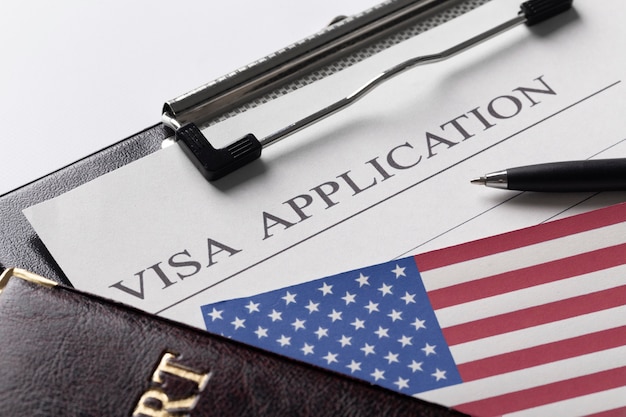The H-1B visa is one of the most sought-after work visas for foreign professionals looking to build their careers in the United States. Designed for skilled workers in specialized fields, it offers numerous benefits, including career growth, higher salaries, and a pathway to permanent residency. But why is the H-1B visa so attractive? Let’s explore its advantages in detail.
Understanding the H-1B Visa
What is the H-1B Visa?
The H-1B visa is a non-immigrant visa that allows U.S. companies to hire foreign workers in specialty occupations requiring advanced skills in fields such as IT, engineering, healthcare, and finance.
Who is Eligible?
To qualify for an H-1B visa, applicants must:
- Hold a bachelor’s degree or higher in a relevant field
- Have a job offer from a U.S. employer
- Work in a specialized occupation requiring expert knowledge
Duration and Renewal
The H-1B visa is initially granted for up to three years, with the option to extend it for an additional three years, making the total stay up to six years.
Benefits of the H-1B Visa
Career Growth and Professional Development
The U.S. is home to some of the world’s leading companies, offering excellent career opportunities for skilled professionals. An H-1B visa can open doors to high-paying jobs, career progression, and leadership roles.
High Salary and Better Compensation
H-1B visa holders often receive salaries that are significantly higher than in their home countries. Additionally, U.S. companies offer attractive benefits such as health insurance, retirement plans, and performance bonuses.
Pathway to Permanent Residency (Green Card)
Many H-1B visa holders use this visa as a stepping stone toward permanent residency in the U.S. Employers often sponsor them for Green Cards, allowing them to settle in the country permanently.
Exposure to a Global Work Environment
Working in the U.S. provides exposure to international markets, cutting-edge technology, and a diverse work culture. This experience enhances professional skills and career prospects worldwide.
Family Benefits
H-1B visa holders can bring their spouses and children (under 21) to the U.S. under the H-4 visa category. Additionally, spouses of H-1B holders may apply for work authorization, allowing them to pursue careers in the U.S.
Flexibility to Change Employers
One of the biggest advantages of the H-1B visa is its portability. Visa holders can switch employers without having to leave the U.S., as long as the new employer sponsors their H-1B transfer.
Economic and Social Benefits
Contribution to the U.S. Economy
H-1B workers play a crucial role in filling skill gaps in the U.S. workforce, driving innovation, and boosting economic growth. Many successful startups and tech giants have been built by former H-1B visa holders.
Higher Standard of Living
Living in the U.S. offers access to high-quality healthcare, education, and public services, ensuring a better quality of life for H-1B visa holders and their families.
Challenges and Limitations of the H-1B Visa
Despite its advantages, the H-1B visa has some challenges:
- The annual cap limits the number of visas issued, making it a highly competitive process.
- Visa holders depend on their employers for sponsorship, which may limit job flexibility.
How to Apply for an H-1B Visa?
Step-by-Step Process
- Find an Employer – Secure a job offer from a U.S. company willing to sponsor your H-1B visa.
- Employer Files Petition – Your employer must file Form I-129 (Petition for a Nonimmigrant Worker) with USCIS.
- Lottery Selection (If Applicable) – Due to high demand, the U.S. government conducts a lottery to randomly select applications.
- Approval and Visa Stamping – If selected, applicants attend a visa interview at the U.S. consulate.
Conclusion
The H-1B visa is an excellent opportunity for skilled professionals to work in the U.S., earn a competitive salary, and build a promising career. Despite the challenges, the benefits far outweigh the drawbacks, making it a desirable choice for many aspiring immigrants.
FAQs
-
Can H-1B visa holders apply for a Green Card?
Yes, many H-1B workers transition to permanent residency through employer sponsorship. -
How long can an H-1B visa holder stay in the U.S.?
The maximum stay is six years, including extensions. -
Can an H-1B visa holder change employers?
Yes, they can transfer their visa to a new employer without leaving the U.S.


